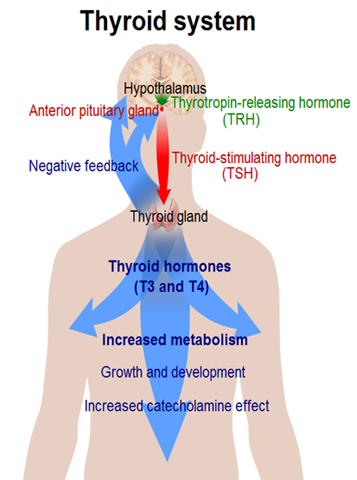 Print This Post
Print This Post
Diabetes Drug Causes Diabetes?
Written by Wellness Club on May 19, 2017 – 12:05 pm -By Nurse Mark
Not likely…
We have often warned that it can be easy for the uninformed to become confused and miss-interpret things that they find on the internet. In fact, it is so easy to do that even people who should know better can embarrass themselves.
Such is the case with a recent article by a prominent doctor and internet personality.
Now, we follow this doctors work because he often has some good things to say. But in a recent article damning the Big Pharma drug metformin the author got it wrong by 180 degrees. How embarrassing!
Notice that I said “the author” and not “the doctor.” It’s fairly common practice for many of the more prolific doctor blogs and newsletters to have many of their articles written by staff or outside writers and not by the doctor on the masthead. This is because if the doctor actually wrote all those articles there would be no time left to look after patients!
So, while it may be OK for a busy doc to use others to do some writing, it is also important for that doc to proof read the material and ensure that it is accurate. That obviously didn’t happen in this case!
You see, this article makes it’s case for metformin being the “cause” of diabetes by quoting studies that prove just the opposite. How does the author do that? Through a simple misunderstanding – a basic lack of knowledge – of how the thyroid gland works. This is basic endocrinology taught to every doctor early in their schooling, and that is what makes us think that this doctor neither wrote nor proof-read this article.
 The article confuses thyroid hormones with a hormone produced by the pituitary gland.
The article confuses thyroid hormones with a hormone produced by the pituitary gland.
The thyroid gland makes two hormones – triiodothyronine (T3) and thyroxine (T4).
It does this in response to stimulation by the hypothalamus and the anterior pituitary glands.
When those glands sense the need to boost thyroid function they produce a hormone called, appropriately enough, Thyroid Stimulating Hormone (TSH). When thyroid function is adequate, they stop making TSH so that the thyroid does not over-produce its T3 and T4 hormones. It’s a fairly simple negative feedback system: when thyroid function is low, TSH is high and when thyroid function is high, TSH is low.
Think of it like your automobile: If you are not going fast enough you “stimulate” your car with more pressure on the gas pedal. When you are going too fast, you remove that pressure on the gas pedal to remove the “stimulation” and slow down. When you are going just fast enough you keep a light, steady pressure on the gas pedal to keep your speed just right. TSH is the gas pedal for the thyroid gland. Low TSH doesn’t mean that the thyroid is not working – it means the opposite, that there is plenty of thyroid hormones and the pituitary has “taken its foot off the gas pedal.”
Now, let’s look at what the famous doctor’s article claims:
First, the author references a study that shows that, in people with high TSH levels (that is, the pituitary is making more TSH to tell the thyroid to work harder) taking metformin results in a lowering of TSH levels.
Next, the author references another study that shows that people with low TSH levels are at much higher risk of developing diabetes.
Then, the author connects the two to claim that taking metformin increases the risk of developing diabetes.
Oops!
Do you see what just happened? The author of the article just confused Thyroid Hormone (that would be T3 and T4) with Thyroid Stimulating Hormone (TSH).
Remember, when TSH is high, thyroid function is low. TSH is high because the pituitary is telling a low thyroid to wake up and work harder.
Yes, taking metformin seems to help a sluggish thyroid work better – as evidenced by reduced TSH levels.
Yes, people with low thyroid function are at greater risk for developing diabetes.
But, low TSH is not low thyroid function – it is just the opposite.
Low TSH is normal or high thyroid function, and metformin, a very good drug for many other reasons, appears to support thyroid function which reduces the risk of developing diabetes.
Glad we got that straightened out!
References:
Mozhgan Karimifar, et al. Effect of metformin on thyroid stimulating hormone and thyroid volume in patients with prediabetes: A randomized placebo-controlled clinical trial. J Res Med Sci. 2014 Nov; 19(11): 1019–1026.
PMCID: PMC4310072 https://www.ncbi.nlm.nih.gov/pmc/articles/PMC4310072/
"In prediabetic people, metformin decreases serum TSH, only, in those people with TSH >2.5 μU/ml and reduces the size of small solid thyroid nodules."
https://www.ncbi.nlm.nih.gov/pmc/articles/PMC4310072/
Jason Harris, Endocrinology Advisor, ENDO 2016, Type 2 Diabetes Risk Increased With Low Thyroid Function. April 03, 2016
“Low thyroid function is associated with higher risk of developing diabetes, but also the progression from prediabetes to diabetes and this is even within the normal range of thyroid function,” said Layal Chaker, MD, of Erasmus Medical Center in Rotterdam, Netherlands.“Low thyroid function as represented by higher TSH [thyroid-stimulating hormone] is associated with a 1.2-fold increased risk of diabetes and a 1.4-fold increased risk for progression from prediabetes.”
http://www.endocrinologyadvisor.com/endo-2016/endo-2016-hypothyroidism-and-type-2-diabetes-risk/article/487231/
Thyroid-stimulating hormone. From Wikipedia, the free encyclopedia.
https://en.wikipedia.org/wiki/Thyroid-stimulating_hormone
Related Posts
 Print This Post
Print This Post

Posted in Nutrition and Health | Comments Off




































